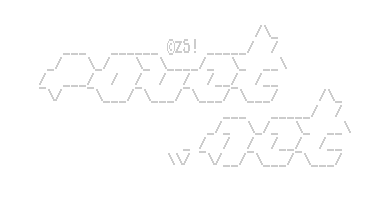Not-so-random seal with bucket thread
category: residue [glöplog]
3dmark2007!

texel: LMAO! I had the same idea, but I can't do animated gifs...

new SEALand story!!! <3 <3

Why is this zoo keeper guy looking like an italian plumber anyway?


texel: <3<3<3<3<3<3<3<33<3<3
Quote:
Why is this zoo keeper guy looking like an italian plumber anyway?
One smoke later I'm convinced it must have something to do with sealing...

firefox has some weird bugs when animated gif's frame delays are set to zero, so here's the same anim with a delay of 3:

texel:

texel:

OH NO, I BE HIT BY BUCKET!

I HAS BUCKET!

(okay, it's a barrel but at least it's blue)

I HAS BUCKET!

(okay, it's a barrel but at least it's blue)

Dreadful - does not roxxor at all
Reminder:











Someone had to.

@bartman:



this thread is anti-seal racist.

O verbo "to have" significa "ter", "possuir". Ele é comumente usado no inglês porquê tem várias funções, exatamente como o "ter" do português. Ele pode ser o verbo principal, verbo auxiliar nos tempos "perfeitos" do presente, passado e futuro, e também na formação de frases possessivas.
No passado, o "have" toma forma de "had".
Exemplos:
- I have to sleep (eu tenho que dormir)
- She had to go (ela teve que ir)
- He have done the activity (ele tem feito a atividade)
- You have a nice car (você tem um carro legal)
Abaixo a lista dos tempos verbais e os pronomes pessoais relacionados:
Presente
- I have = eu tenho
- You have = você tem (tens)
- He has = ele tem
- She has = ela tem
- It has = isto tem
- We have = nós temos
- You have = vós tendes
- They have = eles têm
Passado
- I had = eu tive
- You had = você teve (tiveste)
- He had = ele teve
- She had = ela teve
- It had = isto teve
- We had = nós tivemos
- You had = vós tivestes
- They had = eles tiveram
Futuro (utiliza-se o auxiliar will)
- I will have = eu terei
- You will have = você terá (terás)
- He will have = ele terá
- She will have = ela terá
- It will have = isto terá
- We will have = nós teremos
- You will have = vós tereis
- They will have = eles terão
O verbo HAVE pode ser abreviado no presente, adicionando um apóstrofo + ve depois do sujeito (vale somente para I, You, We, They)
- I've been here before (eu estive aqui antes)
- We've to go (nós temos que ir)
No passado, o "have" toma forma de "had".
Exemplos:
- I have to sleep (eu tenho que dormir)
- She had to go (ela teve que ir)
- He have done the activity (ele tem feito a atividade)
- You have a nice car (você tem um carro legal)
Abaixo a lista dos tempos verbais e os pronomes pessoais relacionados:
Presente
- I have = eu tenho
- You have = você tem (tens)
- He has = ele tem
- She has = ela tem
- It has = isto tem
- We have = nós temos
- You have = vós tendes
- They have = eles têm
Passado
- I had = eu tive
- You had = você teve (tiveste)
- He had = ele teve
- She had = ela teve
- It had = isto teve
- We had = nós tivemos
- You had = vós tivestes
- They had = eles tiveram
Futuro (utiliza-se o auxiliar will)
- I will have = eu terei
- You will have = você terá (terás)
- He will have = ele terá
- She will have = ela terá
- It will have = isto terá
- We will have = nós teremos
- You will have = vós tereis
- They will have = eles terão
O verbo HAVE pode ser abreviado no presente, adicionando um apóstrofo + ve depois do sujeito (vale somente para I, You, We, They)
- I've been here before (eu estive aqui antes)
- We've to go (nós temos que ir)
você tem que STFU

jeenio: The point is that the seal looks retarded.
